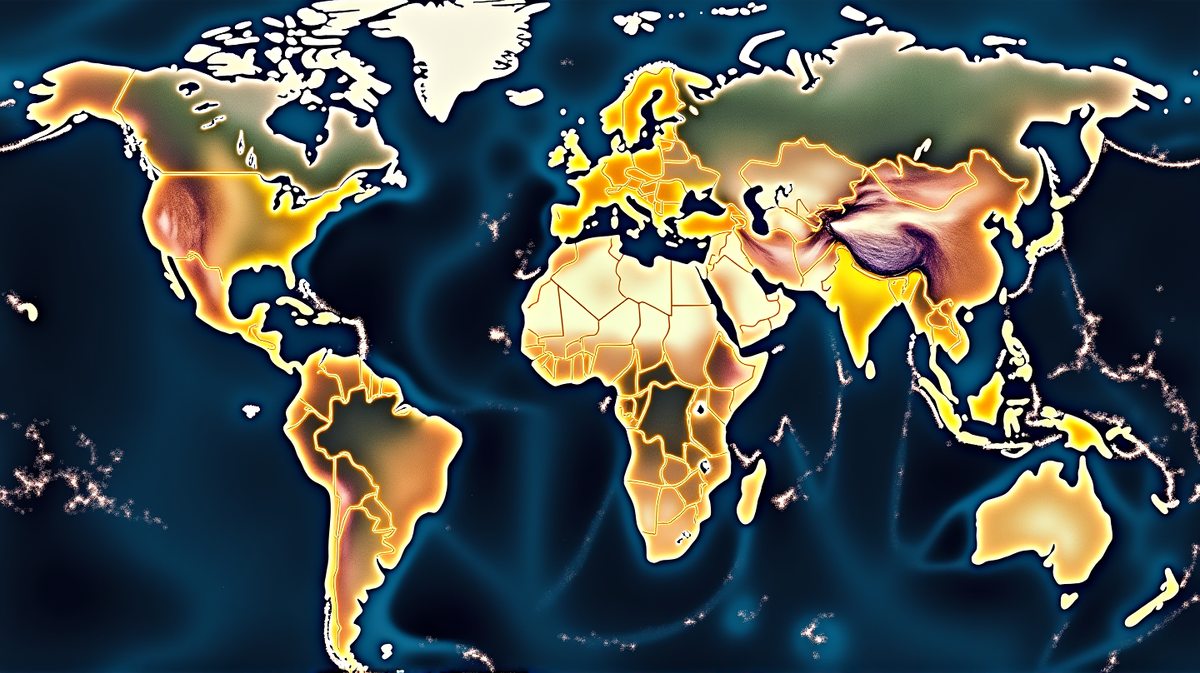The Unseen Ally: Latin America's Strategic Role in Europe's Aspirations
Discover why Latin America is Europe's overlooked ally in an evolving world. Explore the transatlantic ties and shared interests vital for future resilience.

Europe’s pursuit of “strategic autonomy,” largely calls for dependable allies, yet continually overlooks a readily available partner just across the Atlantic—Latin America. This oversight shrouds a region rich in resources and cultural symbiosis within the confines of a vaguely defined “Global South.” In reality, Latin America possesses the intrinsic capabilities to reinforce Europe amidst global turbulence.
Uncovering a Deeply Misunderstood Partnership
Europe has traditionally approached Latin America through the soft lens of cultural exchange and climate initiatives. This has fostered a limited agenda, creating a void that adversaries like China, Russia, and Iran have adeptly filled with strategic investments and infrastructure. This misrepresentation is costly, casting Latin America as problematic rather than a stabilizing partner. Yet, the region shares common interests in law, open trade, and global harmony. Europe does not need assistance from Latin America; instead, a balanced directory of priorities—ranging from open sea lanes to resource and market diversification—is necessary. According to LatinAmerican Post, Latin America is not a burden; it is ballast.
Lessons from Our Shared Transatlantic Past
History attests to Latin America’s strategic potential. During World Wars, Latin American nations significantly aided Allied forces through provisioning and securing critical shipping routes. Then, it was an essential ally, not an oblique actor. Today, however, Europe’s initiatives like the Global Gateway appraise development over defense. But as Europe seeks autonomy within NATO, a revived and strategic alliance is crucial. Defense, alongside other cooperative ventures, must be prioritized. Latin America must be seen not as an afterthought, but as an active partner enabling crisis management—from the Baltic to the Beagle Channel.
The Geopolitical Imperative and Strategic Choke Points
Geographically, Latin America is crucial. As traditional maritime routes face environmental and geopolitical constraints, Latin American choke points like the Strait of Magellan become pivotal. The region remains rife with external influences; Russia, China, and Iran have all established strategic footholds, posing potential threats to stability and order. Signals from the region, such as Argentina’s active defense reforms, accentuate its proclivity for cooperation with Western powers, a sentiment Europe would do well to nurture for joint exercises and coordinated crisis management.
A Path from Rhetoric to Real Policy
Transforming diplomatic engagements into decisive strategies necessitates tangible actions beyond development aid. Europe must pivot towards active security cooperation, engaging in activities like trilateral naval maneuvers and intelligence swap frameworks. Such efforts should naturally integrate with other critical projects, including green energy and digital resilience.
Ultimately, Europe’s long-term autonomy won’t arise from isolation but through widening its circle of trusted allies. Latin America is crucial to this endeavor, rooted in history and poised to shape the future of security and prosperity. In an era defined by fraught waterways and economic volatility, Europe has a stark choice: embrace Latin America as a vital Atlantic producer of stability or allow external forces to dictate its evolution.





